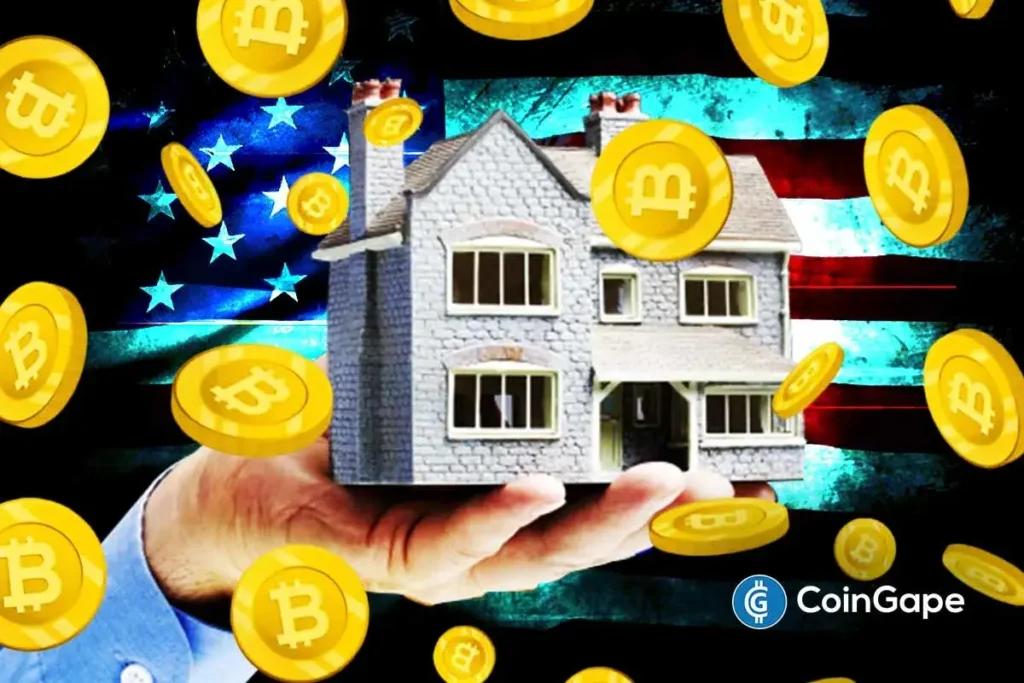The Future of Mortgage Evaluations: Embracing Bitcoin and Crypto Assets
A significant shift in mortgage evaluations may be on the horizon, thanks to a new bill introduced in the U.S. House of Representatives. Spearheaded by Representative Nancy Mace of South Carolina, the legislation—known as H.R.4374—was filed on July 14, 2025, and aims to incorporate Bitcoin and other cryptocurrencies into the mortgage lending process. This transformative proposal would require mortgage lenders to consider crypto assets held in brokerage accounts, potentially changing how financial institutions assess borrower eligibility.
The Essence of H.R.4374: A New Financial Framework
Under current regulations, mortgage evaluations typically focus on traditional variables like cash reserves, bank balances, and tax returns. Unfortunately, this means that most crypto holdings, including Bitcoin, are disregarded in these assessments. The introduction of H.R.4374 could change this, allowing digital assets to be included in mortgage evaluations, thereby modernizing underwriting systems across various agencies. If passed, this bill would enable borrowers to leverage their cryptocurrency holdings to bolster their chances of qualifying for a mortgage, making home ownership more accessible.
Expanding the Definition of Assets
One of the most notable aspects of the proposed legislation is its inclusivity. While Bitcoin often garners the spotlight in discussions about cryptocurrencies, the bill does not restrict its application solely to Bitcoin; it covers any digital assets held in a brokerage account linked to a crypto exchange. This broad approach encourages a more diverse assessment of a borrower’s financial standing, which could benefit many potential homebuyers who traditionally might have difficulty obtaining mortgages due to the rigidity of existing regulations.
Industry Reactions: Boosting Financial Inclusion
The bill has garnered attention within the financial community. Notably, the U.S. Federal Housing Finance Agency (FHFA) Director, Bill Pulte, hinted at plans to integrate crypto holdings into the mortgage qualification process back in June 2025. ARK Invest CEO Cathie Wood reacted to this announcement, emphasizing that such inclusive measures would significantly elevate Bitcoin’s role in mainstream finance. The inclusion of crypto assets could particularly aid younger investors and early adopters, providing them with greater access to home loans that were previously out of reach under the traditional system.
Advantages for Veterans: Enhancing Access to VA Mortgages
Another critical aspect of H.R.4374 is its implications for veterans seeking VA-backed mortgages. The bill proposes that Bitcoin and other crypto holdings be considered during credit evaluations for veterans, potentially improving accessibility for service members who engage in the digital asset space. Given that many veterans have been historically underserved by lending institutions, this provision could serve as a tool for enhancing financial inclusion and support for those who have served the country.
The Road Ahead: Legislative Process and Implications
As of now, H.R.4374 has been forwarded to the House Financial Services Committee and the Veterans Affairs Committee, marking the beginning of its legislative journey. Before it can become law, the bill will need to garner approval from both the House of Representatives and the Senate and receive the President’s signature. The enactment of this legislation would not only redefine mortgage evaluations but could also lead to a ripple effect, prompting agencies to establish clear guidelines around which crypto platforms qualify for underwriting.
Conclusion: A Step Towards Modernized Lending Practices
In conclusion, H.R.4374 represents a pivotal moment in the evolution of mortgage evaluations. By acknowledging Bitcoin and other cryptocurrencies as legitimate assets in the lending process, the legislation could reshape the financial landscape for homebuyers across the country. As the digital asset space continues to grow, integrating crypto holdings into traditional financial assessments will likely foster a more inclusive environment, granting many individuals the opportunity to realize their dream of home ownership. The success of this bill could pave the way for further innovations in finance, emphasizing the importance of adapting to a rapidly changing economic landscape.


